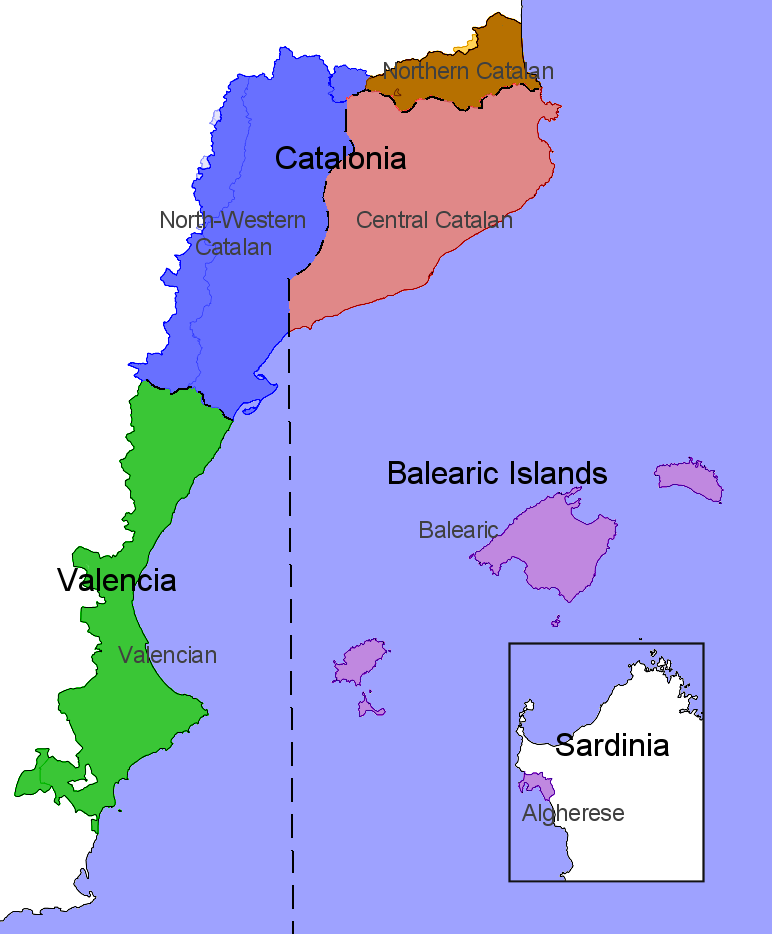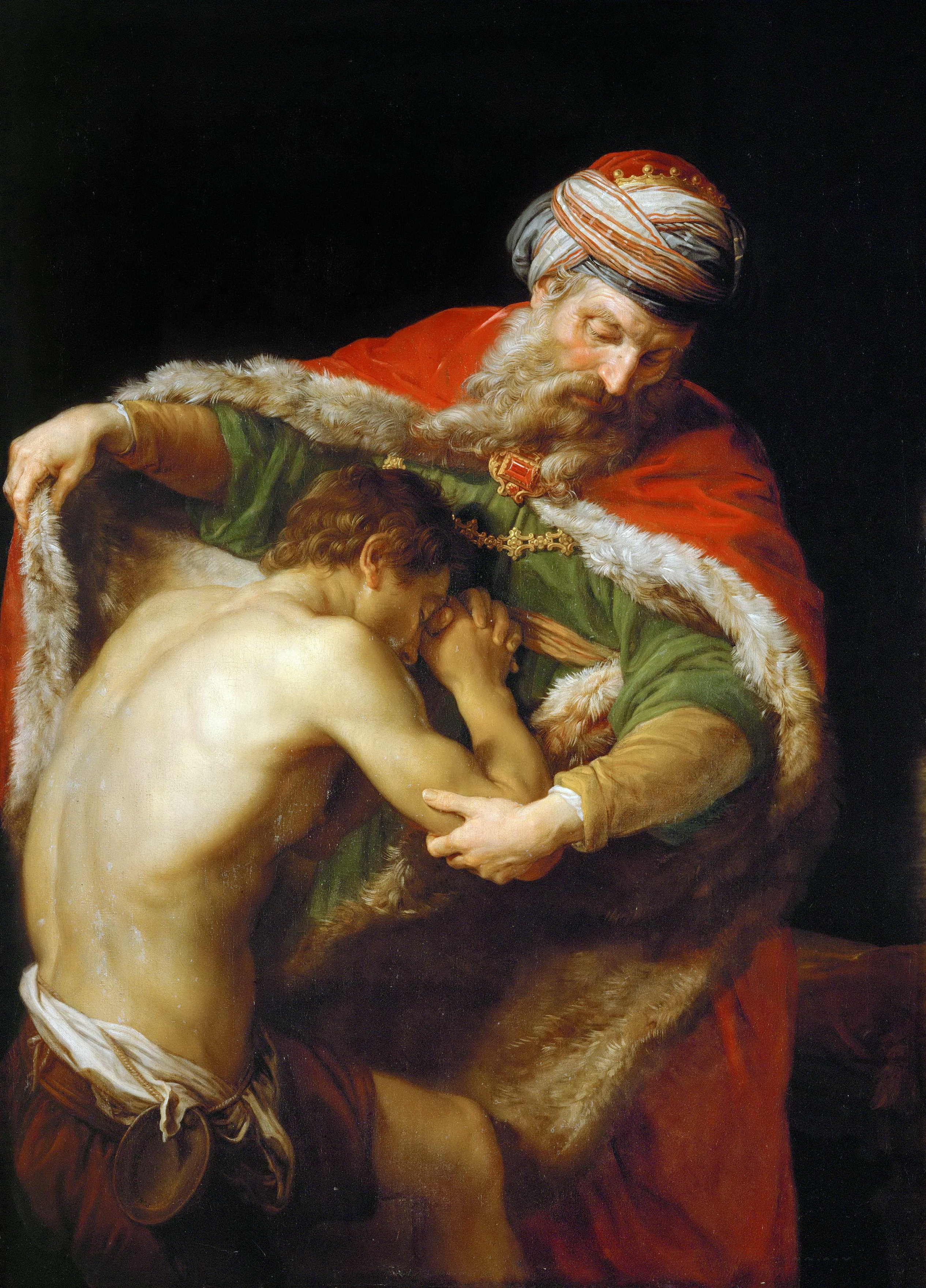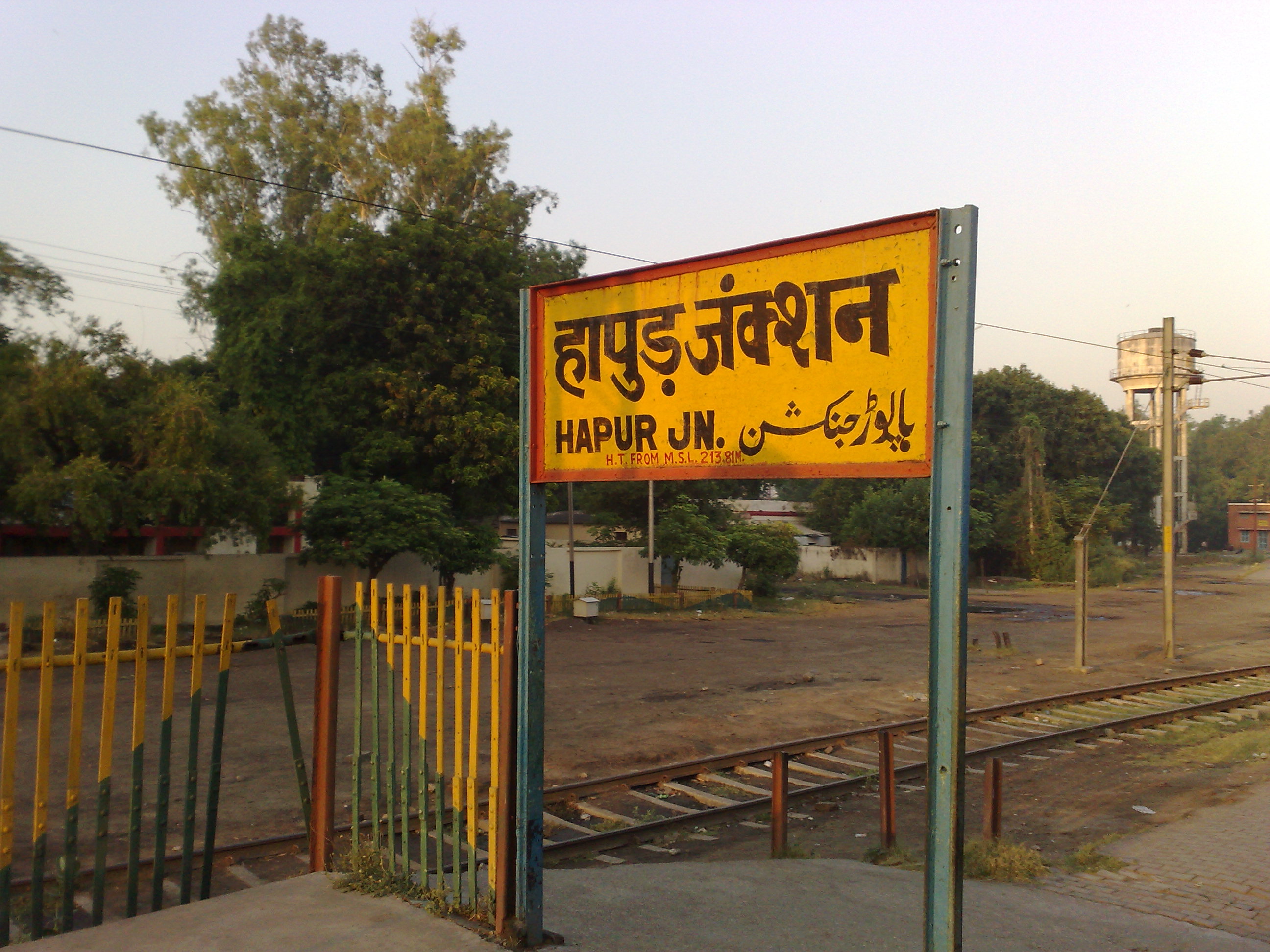|
Central Catalan
Central Catalan ( ca, catalû central) is an Eastern Catalan dialect spoken in the whole province of Barcelona, the eastern half of the province of Tarragona and most of the province of Girona, except for its northern part, where a transition to Northern Catalan begins. This variety (when free of localisms from Barcelona, Tarragona or Girona) is perceived by most Catalans as the standard form in Catalonia. As such, it is the variety used in most written and audiovisual media, as well as in learning materials. Empordanese Catalan In the Empordû region of Catalonia there is a distinctive Empordanese subdialect. As evidenced in writings from the turn of the 19th century by authors such as Joaquim Ruyra, differences between Empordanese and Barcelonese were formerly more pronounced in such areas of usage as the ''salat'' definite article (which is still common in Balearic Catalan). In the books of Ruyra there are signs of a clear state of diglossia: the more cultured figures, in ... [...More Info...] [...Related Items...] OR: [Wikipedia] [Google] [Baidu] |
Catalan Dialects-en
Catalan may refer to: Catalonia From, or related to Catalonia: * Catalan language, a Romance language * Catalans, an ethnic group formed by the people from, or with origins in, Northern Catalonia, Northern or southern Catalonia Places * 13178 Catalan, asteroid #13178, named "Catalan" * CatalûÀn (crater), a lunar crater named for Miguel ûngel CatalûÀn * ûatalan, á¯vrindi, a village in BaláÝkesir province, Turkey * ûatalan, KaraisaláÝ, a village in Adana Province, Turkey * Catalan Bay, Gibraltar * Catalan Sea, more commonly known as the Balearic Sea * Catalan Mediterranean System, the Catalan Mountains Facilities and structures * ûatalan Bridge, Adana, Turkey * ûatalan Dam, Adana, Turkey * Catalan Batteries, Gibraltar People * Catalan, Lord of Monaco (1415ã1457), Lord of Monaco from 1454 until 1457 * Alfredo CatalûÀn (born 1968), Venezuelan politician * Alex CatalûÀn (born 1968), Spanish filmmaker * Arnaut Catalan (1219ã1253), troubador * Diego CatalûÀn (1928ã2008), Spa ... [...More Info...] [...Related Items...] OR: [Wikipedia] [Google] [Baidu] |
Balearic Catalan
Balearic ( ca, balear) is the collective name for the dialects of Catalan spoken in the Balearic Islands: in Mallorca, in Ibiza and in Menorca. At the last census, 746,792 people in the Balearic Islands claimed to be able to speak Catalan, though some of these may be speakers of mainland variants. Dialects The dialects spoken in the Balearic Islands are , spoken on Mallorca, on Menorca and on Ibiza and Formentera. Features Distinctive features of Catalan in the Balearic Islands differ according to the specific variant being spoken (Mallorcan, Menorcan, or Ibizan). Phonetic features ;Vowels * Most variants preserve a vocalic system of eight stressed vowels; , , , , , , , : ** The Majorcan system has eight stressed vowels , reduced to four in unstressed position. ** The Western Minorcan system has eight stressed vowels , reduced to three in unstressed position. ** The Eastern Minorcan and partly the Ibizan system have seven stressed vowels reduced to three in unstressed ... [...More Info...] [...Related Items...] OR: [Wikipedia] [Google] [Baidu] |
Algherese
Algherese or Alguerese (Algherese: ) is the variant of Catalan spoken in the city of Alghero ( in Catalan), in the northwest of Sardinia, Italy. The dialect has its roots in 1372, when Catalan-speaking colonists were allowed to repopulate Alghero and expel the native population, after several revolts. Catalan was replaced as the official language by Spanish, then by Italian in the mid-18th century. Today the language has semi-official recognition alongside Italian. Studies give an approximate number of 20,000 to 30,000 native speakers of the language worldwide. In communities where Algherese is spoken, Italian and Logudorese Sardinian are often used as well. History Algherese is a regional dialect spoken by anywhere from 20,000 to 30,000 individuals, most of whom reside in the town of Alghero, located in the northwest of Sardinia. The language, though distinct, is initially derived from, and thus considered a variant of, the Catalan language. The origins of the language ... [...More Info...] [...Related Items...] OR: [Wikipedia] [Google] [Baidu] |
Valencian
Valencian () or Valencian language () is the official, historical and traditional name used in the Valencian Community (Spain), and unofficially in the Carche, El Carche comarca in Regiû°n de Murcia, Murcia (Spain), to refer to the Romance languages, Romance language also known as Catalan language, Catalan. 'towel', ''afecta'' > 'affects'. Vowel harmony differs greatly from dialect to dialect, while many varieties assimilate both to the height and the quality of the preceding stressed vowel (e.g. ''terra'' 'Earth, land' and ''dona'' 'woman'); in other varieties, it is just the height that assimilates, so that ''terra'' and ''dona'' can be pronounced with either () or with (), depending on the speaker. *** In a wider sense, vowel harmony can occur in further instances, due to different processes involving palatalisation, velarisarion and labialisation **In certain cases, the unstressed become silent when followed or preceded by a stressed vowel: ''quinze anys'' . **In cer ... [...More Info...] [...Related Items...] OR: [Wikipedia] [Google] [Baidu] |
Catalan Language
Catalan (; autonym: , ), known in the Valencian Community and Carche as ''Valencian'' (autonym: ), is a Western Romance language. It is the official language of Andorra, and an official language of three autonomous communities in eastern Spain: Catalonia, the Valencian Community, and the Balearic Islands. It also has semi-official status in the Italian comune of Alghero. It is also spoken in the Pyrûˋnûˋes-Orientales department of France and in two further areas in eastern Spain: the eastern strip of Aragon and the Carche area in the Region of Murcia. The Catalan-speaking territories are often called the or "Catalan Countries". The language evolved from Vulgar Latin in the Middle Ages around the eastern Pyrenees. Nineteenth-century Spain saw a Catalan literary revival, culminating in the early 1900s. Etymology and pronunciation The word ''Catalan'' is derived from the territorial name of Catalonia, itself of disputed etymology. The main theory suggests that (Latin ... [...More Info...] [...Related Items...] OR: [Wikipedia] [Google] [Baidu] |
Manuel Milû I Fontanals
Manuel Milû i Fontanals (; May 4, 1818 ã July 16, 1884) was a Spanish scholar. He was born at Vilafranca del Penedû´s, near Barcelona, and was educated first in Barcelona, and afterwards at the University of Cervera. In 1845, he became professor of literature at the University of Barcelona, and held this post until his death at Vilafranca del Penedû´s on the July 16, 1884. The type of the scholarly recluse, Milû i Fontanals was almost unknown outside the walls of the university until 1859, when he was appointed president of the ''jocs florals'' at Barcelona. On the publication of his treatise, ''De Los trovadores en EspaûÝa'' (1866), his merits became more generally recognized, and his monograph, ''De la poesûÙa herû°ico-popular castellana'' (1873) revealed him to foreign scholars as a master of scientific method. He brought the chivalric romance ''Curial e Gû¥elfa ''Curial e Gû¥elfa'' is an anonymous Catalan chivalric romance of the fifteenth century, notable for incorp ... [...More Info...] [...Related Items...] OR: [Wikipedia] [Google] [Baidu] |
Parable Of The Prodigal Son
The Parable of the Prodigal Son (also known as the parable of the Two Brothers, Lost Son, Loving Father, or of the Forgiving Father) is one of the parables of Jesus Christ in the Bible, appearing in Luke 15:11ã32. Jesus shares the parable with his disciples, the Pharisees and others. In the story, a father has two sons. The younger son asks for his portion of inheritance from his father, who grants his son's request. This son, however, is (i.e., wasteful and extravagant), thus squandering his fortune and eventually becoming destitute. As consequence, he must now return home empty-handed and intends to beg his father to accept him back as a servant. To the son's surprise, he is not scorned by his father but is welcomed back with celebration and a welcoming party. Envious, the older son refuses to participate in the festivities. The father tells the older son: "you are ever with me, and all that I have is yours, but thy younger brother was lost and now he is found." The Prodiga ... [...More Info...] [...Related Items...] OR: [Wikipedia] [Google] [Baidu] |
Balearic Islands
The Balearic Islands ( es, Islas Baleares ; or ca, Illes Balears ) are an archipelago in the Balearic Sea, near the eastern coast of the Iberian Peninsula. The archipelago is an autonomous community and a province of Spain; its capital is Palma. The 2007 Statute of Autonomy designates the Balearic Islands as one of the ''nationalities'' of Spain. The official languages of the Balearic Islands are Catalan and Spanish. Its four largest islands are Mallorca, Menorca, Ibiza, and Formentera. Many of its minor islands and islets are close to the larger islands, including Cabrera, Dragonera, and S'Espalmador. The islands have a Mediterranean climate, and the four major islands are all popular tourist destinations. Ibiza, in particular, is known as an international party destination, attracting many of the world's most popular DJs to its nightclubs. The islands' culture and cuisine are similar to those of the rest of Spain but have their own distinctive features. Etymology ... [...More Info...] [...Related Items...] OR: [Wikipedia] [Google] [Baidu] |
Diglossia
In linguistics, diglossia () is a situation in which two dialects or languages are used (in fairly strict compartmentalization) by a single language community. In addition to the community's everyday or vernacular language variety (labeled "L" or "low" variety), a second, highly codified lect (labeled "H" or "high") is used in certain situations such as literature, formal education, or other specific settings, but not used normally for ordinary conversation. In most cases, the H variety has no native speakers but various degrees of fluency of the low speakers. In cases of three dialects, the term triglossia is used. When referring to two writing systems coexisting for a single language, the term digraphia is used. The high variety may be an older stage of the same language (as in medieval Europe, where Latin (H) remained in formal use even as colloquial speech (L) diverged), an unrelated language, or a distinct yet closely related present-day dialect (as in northern India a ... [...More Info...] [...Related Items...] OR: [Wikipedia] [Google] [Baidu] |
Joaquim Ruyra
Joaquim Ruyra i Oms (Catalan pronunciation: uèùkim ruùi.èƒè 27 September 1858 ã 15 May 1939) was a Catalan short-story writer, poet and translator, considered a key figure in modern Catalan literature and one of the great narrators of the 20th century. Besides his literary work, he was also aware of linguistics and participed in the First International Congress of Catalan Language (1906). In 1918, he entered the Philological Section of the Institut d'Estudis Catalans, the academic institution responsible for standardizing the Catalan language, where he collaborated with Pompeu Fabra and others in the making of a unified linguistic system. Life Descending from rural owners and lawyers, he studied law in the University of Barcelona between 1875 and 1881, but never practised to dedicate himself completely to literature. Ruyra spent most of his childhood and youth between Girona and the coastal town of Blanes, in the ''comarca'' (county) of la Selva, where he settled ... [...More Info...] [...Related Items...] OR: [Wikipedia] [Google] [Baidu] |
Eastern Catalan
The Catalan dialects feature a relative uniformity, especially when compared to other Romance languages; both in terms of vocabulary, semantics, syntax, morphology, and phonology. Mutual intelligibility between its dialects is very high, estimates ranging from 90% to 95%.Central Catalan has 90% to 95% inherent intelligibility for speakers of Valencian (1989 R. Hall, Jr.), cited oEthnologue The only exception is the isolated idiosyncratic Alguerese dialect. Overview In 1861, linguist Manuel Milû i Fontanals split Catalan into two main dialects: Western and Eastern. The most obvious phonetic difference lies in the treatment of unstressed a and e, which have merged to in Eastern dialects, but remain distinct as and in Western dialects. There are a few other differences in pronunciation, verbal morphology, and vocabulary. Western Catalan comprises the two dialects of Northwestern Catalan and Valencian; the Eastern block comprises three to four dialects (depending on their class ... [...More Info...] [...Related Items...] OR: [Wikipedia] [Google] [Baidu] |
Empordû
Emporda (from the official name in ca, Empordû , , name in es, AmpurdûÀn, ) is a natural and historical region of Catalonia, Spain, divided since 1936 into two ''comarques'', Alt Empordû and Baix Empordû . The city of Figueres, an important urban and economic center of the Empordû , was designated the capital of Alt Empordû , while La Bisbal d'Empordû , following a more geographic and historical criteria, became the capital of Baix Empordû . Empordû has been the cradle for many pictoric schools, with surrealism standing out, including artists such as Salvador DalûÙ, Angel Planells, Joan Massanet and Evarist Vallû´s. Etymology The name ''Empordû '' is a derivative of Empû¤ries (''Empûýrion'' in Old Greek or ''Emporiae'' in Latin), which means "the markets". The name Empordû comes from a succession of phonetic derivatives of County of Empû¤ries, a county which had its capital first in Sant MartûÙ d'Empû¤ries and then in Castellû° d'Empû¤ries the capital of medieval Empordû ... [...More Info...] [...Related Items...] OR: [Wikipedia] [Google] [Baidu] |




.jpg)